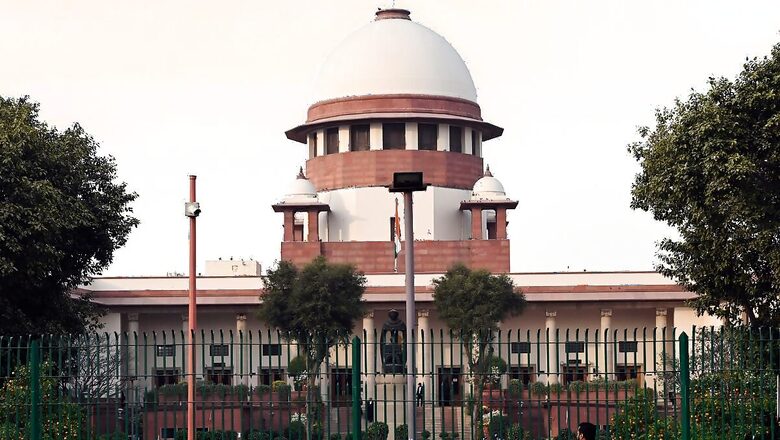
views
The Supreme Court on Thursday ruled by majority that sub-classification within the scheduled castes and scheduled tribes is permissible. The court held that states are empowered to make this classification for granting quota in jobs and admissions.
In a significant move, the top court — by 6:1 majority — set aside its own 2004 judgment in the EV Chinnaiah case that ruled against sub-classification of scheduled castes (SC).
The seven-judge constitution bench, headed by Chief Justice of India DY Chandrachud, said sub-classification is permissible to grant separate quotas for more backwards within the SC/ST categories. It delivered six separate judgements.
“There are six opinions. A majority of us has overruled EV Chinnaiah and we hold sub-classification is permitted. Justice Bela Trivedi has dissented. The members of SC/ST are often not able to climb up the ladder due to the systemic discrimination faced,” said Chief Justice Chandrachud.
The SC said historical evidence shows that depressed class were not homogenous class, and social conditions show that all classes under that is not uniform. “The struggles that a class faces does not disappear with the representation it receives in the lower grades,” the CJI said while pronouncing the order.
Justice BR Gavai, who read out the concurring opinion, said a policy must be evolved to identify creamy layer among the SC/ST categories and “take them out of the fold of affirmative action (reservation)”. “…This is the only way to gain true equality,” he said.
The bench, also comprising justices BR Gavai, Vikram Nath, Bela M Trivedi, Pankaj Mithal, Manoj Misra and Satish Chandra Mishra, was hearing 23 petitions including the lead one filed by the Punjab government challenging a 2010 verdict of the Punjab and Haryana High Court. The CJI wrote for himself and Justice Misra. Four judges wrote concurring judgments while Justice Trivedi dissented.
This ruling will impact Karnataka, which, in January, wrote the central government to insert Article 341(3) into the Constitution to enable states to provide internal reservation among SCs. In the Congress-ruled state, the SC-Left subsects are demanding for internal reservation but, politically, they are considered to be backing the BJP.
Here are the key takeaways from the SC verdict:
- Sub-classification among reserved categories permissible
- SC/STs cannot be considered to be homogenous
- Sub-classification only possible if supported by quantifiable data
- Permissible for Centre and states to earmark most backward classes within the reserved category of SC/STs
- 2004 Supreme Court judgment in EV Chinnaiah case overruled
What did Justice Trivedi say in her dissent note?
Writing a dissenting verdict, Justice Trivedi said states cannot tinker with the SC list notified under Article 341 of the Constitution. She said affirmative action of states has to be within constitutional fold. The state’s action to provide reservation even if well intentioned cannot be justified by the Supreme Court using powers under Article 142, she added.
What is the EV Chinnaiah case?
The Supreme Court verdict came after there were references to revisit the five-judge constitution bench judgement of 2004 in the case of EV Chinnaiah vs State of Andhra Pradesh. The court had reserved its verdict on February 8 on pleas seeking this judgment’s review.
In 2004, the apex court had ruled that all SC communities, which suffered ostracisation, discrimination and humiliation for centuries, represented a homogeneous class incapable of being sub-categorised. States cannot further sub-classify them to grant quota inside quota for more deprived and weaker castes in these groups, it had said while pronouncing the previous judgment.
















Comments
0 comment